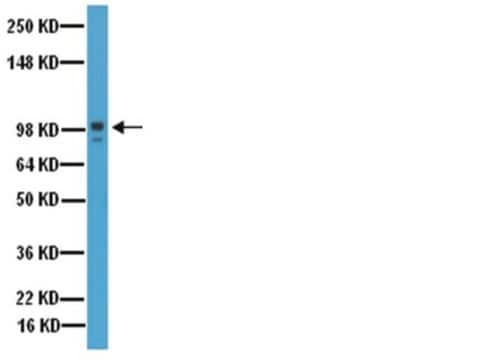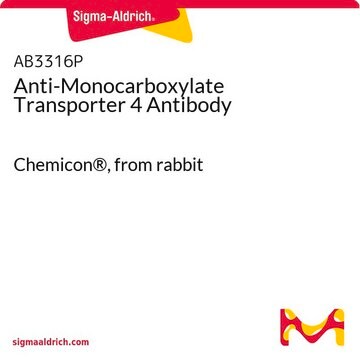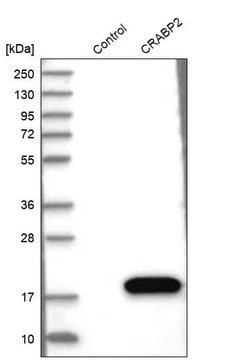AB3314P
Anti-Monocarboxylate Transporter 4 Antibody
Chemicon®, from rabbit
Synonym(s):
MCT4
About This Item
Recommended Products
biological source
rabbit
Quality Level
antibody form
affinity purified immunoglobulin
antibody product type
primary antibodies
clone
polyclonal
purified by
affinity chromatography
species reactivity
rat
manufacturer/tradename
Chemicon®
technique(s)
ELISA: suitable
western blot: suitable
NCBI accession no.
UniProt accession no.
shipped in
dry ice
target post-translational modification
unmodified
Gene Information
human ... SLC16A3(9123)
Specificity
Note: According to new nomenclature, the old MCT3 has now been reclassified as MCT4. Consult Halestrap and Price (1999) Biochem. J. 343:281-299.
SPECIES REACTIVITIES:
Rat. The immunogen sequence is 100% conserved in human and mouse and 78% conserved in chicken. Reactivity with other species has not been confirmed.
Immunogen
Application
Neuroscience
Ion Channels & Transporters
ELISA: 1:10,000-1:100,000 using 50-100 ng control peptide per well.
Optimal working dilutions must be determined by the end user.
Linkage
Physical form
Storage and Stability
Other Notes
Legal Information
Disclaimer
Not finding the right product?
Try our Product Selector Tool.
Storage Class Code
12 - Non Combustible Liquids
WGK
WGK 2
Flash Point(F)
Not applicable
Flash Point(C)
Not applicable
Certificates of Analysis (COA)
Search for Certificates of Analysis (COA) by entering the products Lot/Batch Number. Lot and Batch Numbers can be found on a product’s label following the words ‘Lot’ or ‘Batch’.
Already Own This Product?
Find documentation for the products that you have recently purchased in the Document Library.
Our team of scientists has experience in all areas of research including Life Science, Material Science, Chemical Synthesis, Chromatography, Analytical and many others.
Contact Technical Service







